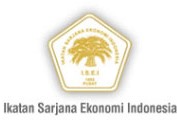Trade Policies Support for Palm Oil Downstreaming in Indonesia
(1) Center for Strategic and Global Studies, University of Indonesia, Jakarta
(2) Faculty of Administrative Science, University of Indonesia, Depok
(3) Center for Strategic and Global Studies, University of Indonesia, Jakarta
(4) Faculty of Economics and Business, University of Indonesia, Depok
(5) Faculty of Economics and Business, University of Indonesia, Depok
Abstract
The optimal trade policies are essential to determine the balance between international trade liberalization and protection in order to advance palm oil. Protection is carried out by limiting the export of CPO, while the liberalization applies to raw supporting materials that are not produced in Indonesia. However, the export limitations need to be implemented carefully to avoid counterproductivity to the palm oil industry. This study recommended necessary trade policies to enhance palm oil downstreaming, as well as assessed existing efforts and current policies. This study estimated that a 5% reduction in upstream product export and a 15% increase in downstream product export could rise Indonesian foreign exchange earnings by approximately 7 million USD annually. Descriptive statistics and value-added calculations were employed in this study. Indonesia should restrict the Crude Palm Oil (CPO) towards the countries that exclusively involved in the palm oil trade, guaranteeing that Indonesian palm oil products reach nations where they are utilized. To protect palm oil downstreaming industries, including food, cosmetics, detergents, chemicals, and animal feed, it is vital to regulate imports. Furthermore, strategic trade policies should be enacted to facilitate the export of these refined products. Strengthened negotiation and diplomatic capabilities are also indispensable.
Keywords
Full Text:
PDFReferences
Abdulla, I. et al. (2014). Impact of cpo export duties on Malaysian palm oil industry. American Journal of Applied Sciences, 11(8). Doi: 10.3844/ajassp.2014.1301.1309.
Adhikari, S., Poudel, D., & Gopinath, M. (2023). Is Policy Greasing the Wheels of Global Palm Oil Trade?. Research on World Agricultural Economy, 4(2). Doi: 10.36956/rwae.v4i2.859.
Amanta, F., & Aprilianti, I. (2020). Indonesian Food Trade Policy during Covid-19. CIPS: Center for Indonesian Policy Studies, 2020(1).
Arsyad, M. et al. (2020). Competitiveness of Palm Oil Products in International Trade: An Analysis between Indonesia and Malaysia. Caraka Tani: Journal of Sustainable Agriculture, 35(2). Doi: 10.20961/carakatani.v35i2.41091.
Bayar, Y. & Gunduz, M. (2020). The impact of foreign direct investment inflows and trade liberalization on human capital development in EU transition economies. Online Journal Modelling the New Europe, (32). Doi: 10.24193/OJMNE.2020.32.02.
Bown, C. P. et al. (2021). Trade Protection Along Supply Chains. SSRN Electronic Journal. doi: 10.2139/ssrn.3765310.
Cirera, X. et al. (2021). Firm productivity gains in a period of slow trade liberalization: evidence from Brazil. Economia Politica, 38(1). Doi: 10.1007/s40888-020-00204-6.
Coelli, F. (2022). Trade Policy Uncertainty and Innovation: Evidence from China. SSRN Electronic Journal. Doi: 10.2139/ssrn.4169514.
Cuevas Garciá-Dorado, S. et al. (2019). Economic globalization, nutrition and health: A review of quantitative evidence. Globalization and Health. Doi: 10.1186/s12992-019-0456-z.
Hendy, A. H., Firmansyah, F., & Wahyu, W. (2018). The Intra-Industry Trade of Palm Oil Commodity between Indonesia and Malaysia. in E3S Web of Conferences. Doi: 10.1051/e3sconf/20187310011.
Huang, T. (2022). Trade protection and firm innovation in China. International Journal of Emerging Markets. Doi: 10.1108/IJOEM-04-2022-0700.
Hussinger, K., & Issah, W. (2022). Trade Secret Protection and R&D Investment of Family Firms. Family Business Review, 35(4). Doi: 10.1177/08944865221125542.
Irawan, A. (2020). Market Liberalization and Performance of Oil Palm Smallholder Farmer’s Household. Economics Development Analysis Journal, 9(2). Doi: 10.15294/edaj.v9i2.36276.
Kapusta, J., & Lajdová, Z. (2016). Price linkages between biodiesel and selected vegetable oils. Doi: 10.15414/isd2016.s2.02.
Kinzius, L., Smarzynska Javorcik, B., & Yalcin, E. (2021). Trade Protection and the Role of Non-Tariff Barriers. SSRN Electronic Journal. Doi: 10.2139/ssrn.3338773.
Kowalski, P., & Legendre, C. (2023). Raw Materials Critical for the Green Transition: Production, International Trade and Export Restrictions. OECD Trade Policy Paper.
Lakshmi, B. T. et al. (2022a). Impact of ASEAN- India Free Trade Agreement (AIFTA) on Palm Oil Trade. Journal of Experimental Agriculture International. Doi: 10.9734/jeai/2022/v44i112066.
Lakshmi, B. T. et al. (2022b). Trade Competitiveness of Palm Oil Export from ASEAN Countries. Asian Journal of Agricultural Extension, Economics & Sociology. Doi: 10.9734/ajaees/2022/v40i111679.
Malefane, M. R. (2020). Industrial Policy, Trade Openness And Economic Growth Nexus: an Exploratory Review. Proceedings on Engineering Sciences. Doi: 10.24874/PES02.02.007.
Neilson, J. et al. (2020). Resource-based industrial policy in an era of global production networks: Strategic coupling in the Indonesian cocoa sector. World Development, 135. Doi: 10.1016/j.worlddev.2020.105045.
Othman, N., Yusop, Z., & Ismail, M. M. (2023). Environmental Policies And Trade Competitiveness: The Malaysian Palm Oil Downstream Industry. International Journal of Business and Society, 24(1). Doi: 10.33736/ijbs.5611.2023.
Rifin, A. (2009). Price Linkage between International Price of Crude Palm Oil (CPO) and Cooking Oil Price in Indonesia. in International Association of Agricultural Economists Conference.
Safriyana et al. (2019). An analysis and design of downstreaming decision system on palm oil agroindustry based on multilabel classification. in 2018 International Conference on Advanced Computer Science and Information Systems, ICACSIS 2018. doi: 10.1109/ICACSIS.2018.8618185.
Subiyanto, S. (2013). Pemetaan Teknologi Industri Kelapa Sawit Nasional Dan Kebijakan Pengembangannya. Jurnal Sains dan Teknologi Indonesia, 13(1). Doi: 10.29122/jsti.v13i1.876.
Tandra, H., & Suroso, A. I. (2023). The determinant, efficiency, and potential of Indonesian palm oil downstream export to the global market. Cogent Economics and Finance, 11(1). Doi: 10.1080/23322039.2023.2189671.
Topalova, P., & Khandelwal, A. (2011). Trade liberalization and firm productivity: The case of India. Review of Economics and Statistics, 93(3). Doi: 10.1162/REST_a_00095.
Wihardja, M. M. (2016). The effect of the commodity boom on Indonesia’s macroeconomic fundamentals and industrial development’. International Organisations Research Journal, 11(1). doi: 10.17323/1996-7845/2016-01-48.
Wong, K. K. S. et al. (2014). Effects of Export Duty Structure on the Performance of the Malaysian Palm Oil Industry. Journal of Food Products Marketing, 20. Doi: 10.1080/10454446.2014.946194.
Yülek, M. A. (2018) How nations succeed: Manufacturing, trade, industrial policy, and economic development. Doi: 10.1007/978-981-13-0568-9.
Refbacks
- There are currently no refbacks.

This work is licensed under a Creative Commons Attribution 4.0 International License.






